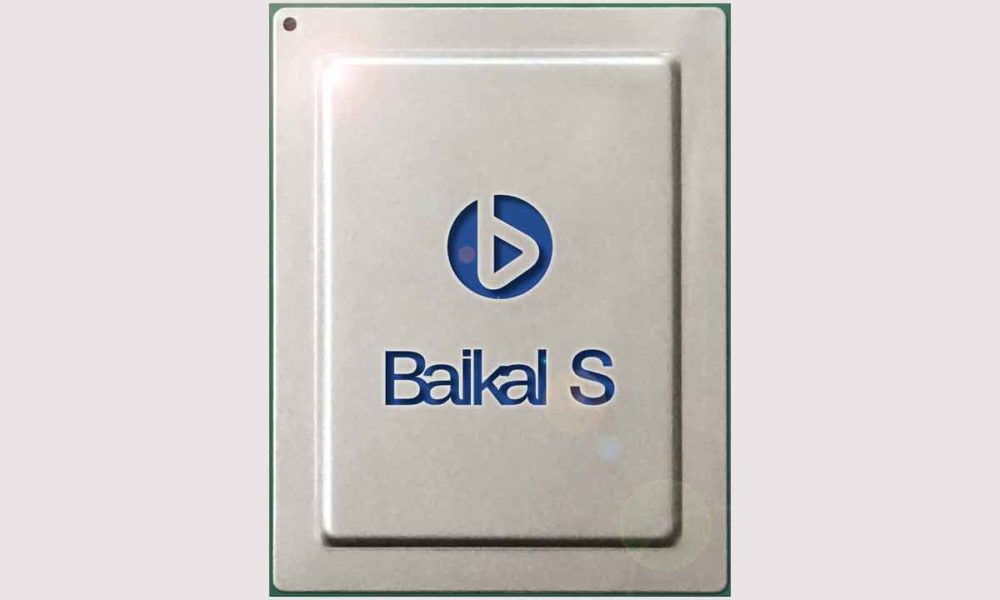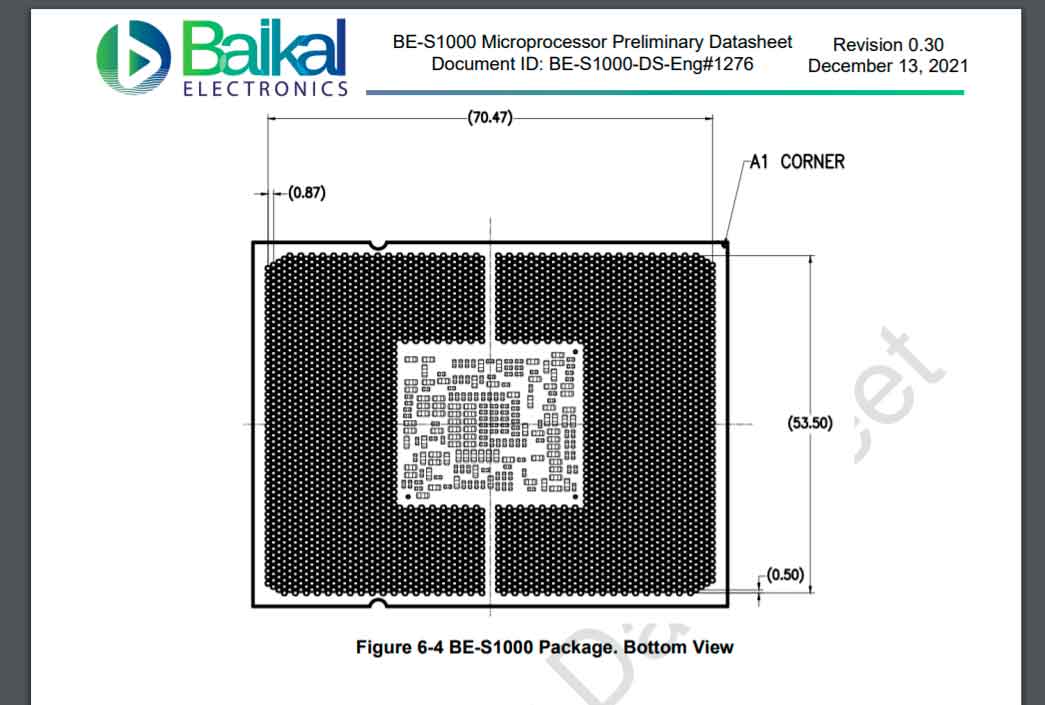
Although its name, Baikal-S, already invites us to think about it, surely many people will be surprised to learn of the works of Baikal Electronics, a Russian company dedicated for years to the design of integrated. What’s more, more than five years ago we told you about a device, the Tavolga Terminal TB-T22BT, which had a Baikal-T1 CPU, a 32-bit chip, manufactured in 28 nanometers and had two P5600 to 1 cores. , 2 gigahertz.
Baikal-T1 was obviously an entry-level integrated, for entry-level device that nonetheless stood out for having a TDP of only 5 watts. Since then the Russian company has continued working and now, five years later, we can see that it has taken a giant leap with its new design, the Baikal-S. As we can see on its own website, these are the Top-of-the-range Baikal-S chip specifications:
- 48 Arm Cortex-A75 cores at 2 gigahertz.
- 12 core clusters (4 cores and 2 MB L3 cache per cluster).
- 64 kilobytes of instruction L1 cache, 64 kilobytes of L1 data cache and 512 KB of cache per core.
- 32 megabytes of L4 cache.
- Six channels of memory compatible with DDR4-3200 with ECC.
- Up to 768 gigabytes per socket (128 gigabytes per channel).
- TDP: 120 watts.
- 16 nanometer lithography (TSMC).
As you can see, this Baikal-S has absolutely nothing to do with what we saw some time ago, which shows us that Russia’s interest in advancing in this field is quite high, to the point that more than a few voices point to the fact that Baikal Electronics’ work is financed by the country’s public institutions.
Be that as it may, the company itself compares the Baikal BE-S1000X, which is the top of the range of the Baikal-S family, with two heavyweights such as the Intel Xeon Gold 6148 (20 cores and 40 threads) and the AMD EPYC 7351 (16 cores and 32 threads), that is, two processors to workstations and servers. It also claims to outperform the 48-core Huawei Kunpeng 920 by 15%.
Thus, the Baikal-S are further proof that, in a short time, chip design will become much more important geopolitical. For some years now, there have been suspicions as to whether the design of the integrated devices may be, in some way, intervened by the states in which they are designed and, therefore, whether they could be used as a spying tool. A type of suspicion that has grown like foam since the actions taken by the United States against Huawei.
Thus, we can see the arrival of these Baikal-S as a technological innovation, of course, but we cannot lose sight of the fact that, surely, these chips will be received with some suspicion by other countries, that surely they will suspect precisely the same thing that Russia suspects, and for which the state would have supported the work of Baikal Technologies. Without a doubt, one more example of the strategic importance of technology today.



